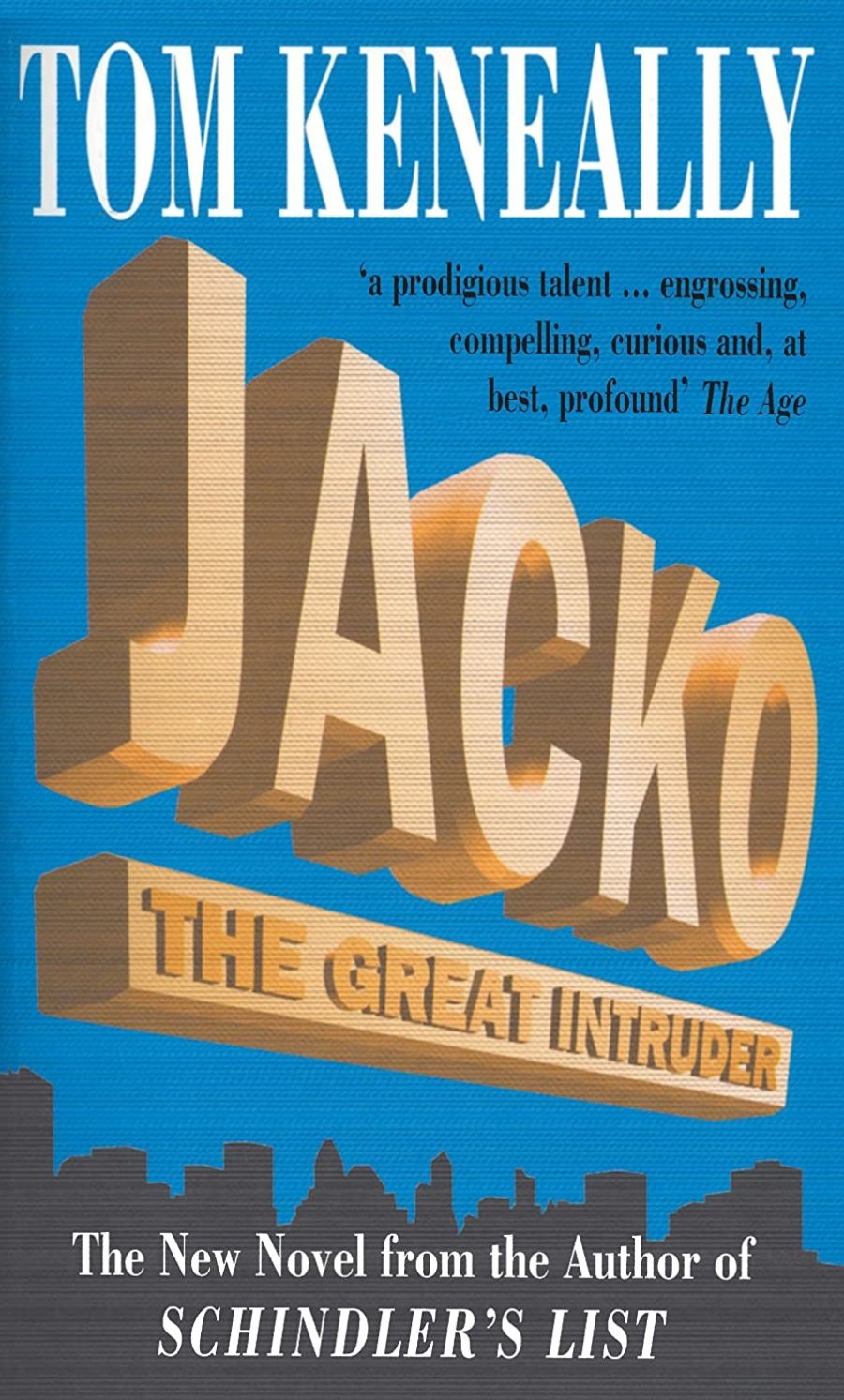
- Free Article: No
- Contents Category: Fiction
- Review Article: Yes
- Online Only: No
- Custom Highlight Text:
We are introduced to the eponymous hero of Jacko by an Australian narrator who is writing a novel about China and teaching a writing class at New York University. The students in his class hero-worship Grace Paley, Alice Munro, and Raymond Carver and compose pieces for submission to the New Yorker.
- Book 1 Title: Jacko
- Book 1 Biblio: WHA, $34.95 hb
Jacko, more formally Jack Emptor, hails from Burren Waters, a considerable property owned by the Emptor family in the Northern Territory. More Australian than Vegemite and gum nuts, Jacko has crossed the Pacific and carved out a niche for himself in American TV journalism. The novel’s opening paragraphs describe him as a ‘video trespasser’ who carries the vox pop interview to its ultimate extreme by having himself hoisted unannounced through the windows of high-rise apartments for live New York TV shows. At the same time, he is abusing his camera man, humming his ‘bush mantra’ The Man from Snowy River, and talking through a mic to the female producer for whom he eventually leaves his Australian wife. Jacko is a more or less lovable larrikin (depending on your point of view) who drinks, promotes the sacred code of mateship, and is sufficiently naïve not to realise that in the modern world ‘men who said persistently and in all company how much they loved women were in fact misogynists’.
No subject for feminist hagiography, in other words; but Jacko’s energy and professional instincts (‘This tale, Jacko knew, had “everything his audience most loved”, pornography, extreme violence against women, redemption’) lead him to the darker recesses of the American psyche. A man with a valve for a voice box asks Jacko on air to help find his daughter. A grim account of childhood abuse, kidnap, physical subjugation, and brainwashing unfolds in the course of the novel. Throughout Jacko there is a lively concern with the politics, economics, and ethics of television as a medium of mass communication, especially in the United States, and the suggestion is that it has taken an Australian outsider to bring what he brings to light.
Flashbacks, trips across the Pacific, and unexpected developments involving the Emptor clan in Burren Waters and Sydney bring a plethora of Australian icons and stereotypes into the narrative, extending its comic and satirical dimensions. The ‘Australian Culture Police’ are derided, Territorian politicking rendered absurd (Maboonly serves to intensify ironies here), an English actress asks in a lah-di-dah accent why you Australians ‘need an Oprah Hice’. There are cameos and larger portraits of prominent Australians, including a not-so-subtle caricature of Patrick White (‘Do you … have to be an utter prick to be a genius’) and a film director called Mark Torlucci celebrates Keneally’s acquaintance with Fred Schepisi (Schepisi filmed Keneally’s own The Chant of Jimmy Blacksmith and The Priest). Other appearances include Gary McDonald as Norman Gunston, David and Kristen Williamson, Dame Joan Sutherland, and Gough Whitlam (who appears as Norris Chambers, a politician whose ‘fall had en-fabled him, like Ned Kelly’).
Does Keneally’s Jacko represent a case of caveat emptor? This probably depends on whether or not you like recent vintage Keneally. I felt Jacko had real strengths – comic vitality with a residual seriousness, even horror, running beneath – and real problems as well. At certain points, such as when the narrator explains the pronunciation and derivation of Australian expressions, I had the impression of reading a narrative written for a non-Australian audience, an American one to be precise. An American audience would, however, be unlikely to identify a fair amount of the local satire and even an Australian audience could feel excluded at times (the Torlucci/Schepisi character is as much auto/biography as satire, though it takes a fair amount of leafing through newspaper clippings to confirm this).
‘Epicene’ and ‘cerebellum’ are fine words but should not be overused. As a travelling journo, it is appropriate for Jacko to travel widely, but a longish episode describing the fall of the Berlin Wall appears to have the most tenuous of connections with the rest of the book. I hate having to wait to be told about characters who are ‘angry for reasons which will be canvassed in the tale’ or dealing with a narrator who asks me to accept that, ‘At the time, of course, I did not understand this connection. It would be made clearer to me later by that good-talker Jacko Emptor.’
The anecdote this review began with says a lot about the contemporary Keneally, who remains a writer to be taken seriously. But I’ll definitely be giving away the novel about China by the other fellow.


Comments powered by CComment